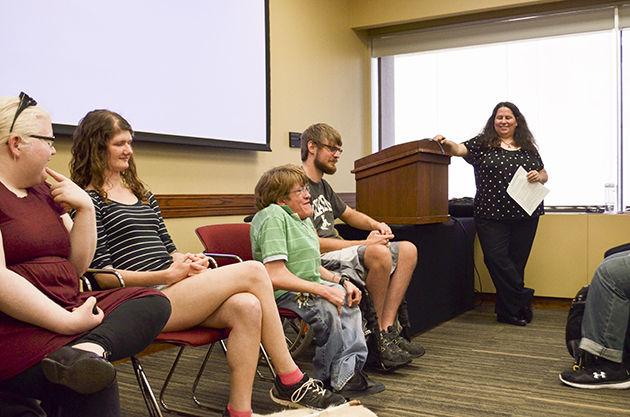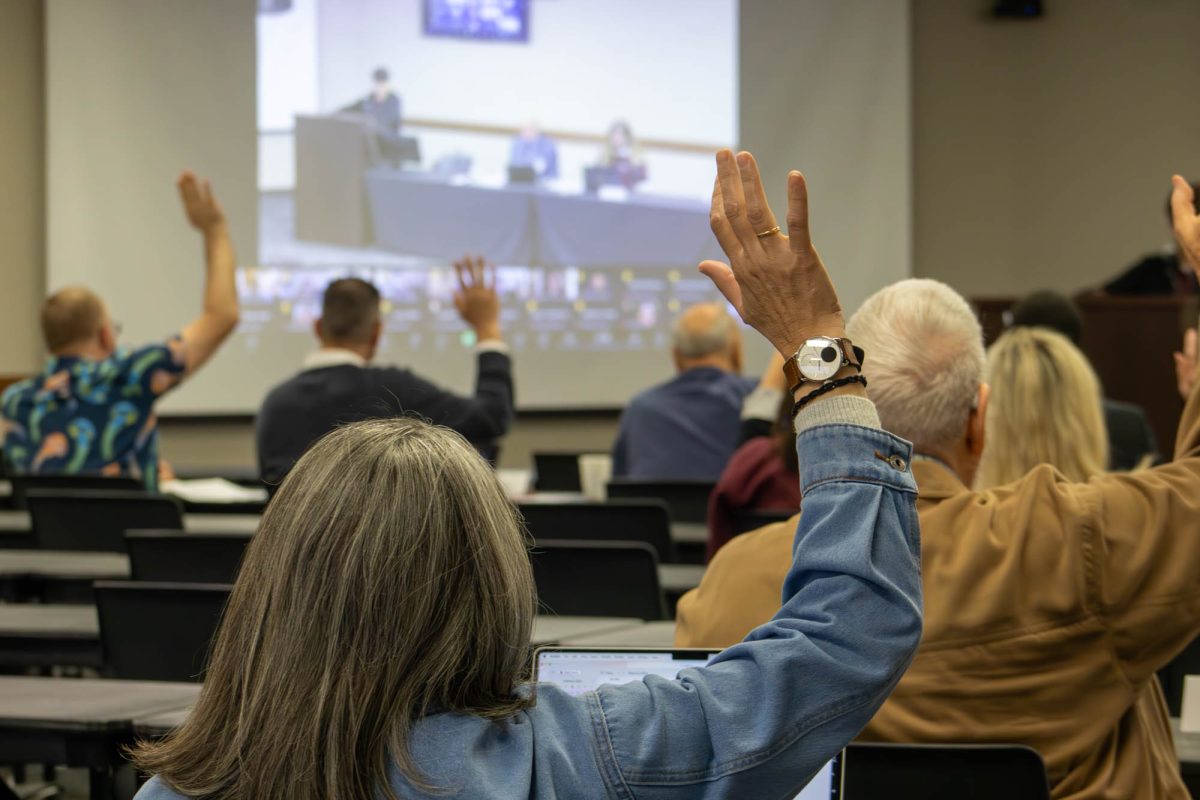The sidewalks, doors and buses that many students use without a second thought can pose unique challenges for Texas A&M’s disabled community — a theme discussed at Wednesday’s Insightful Connections’ disabled students panel.
Five students with various disabilities such as blindness, spinal muscular atrophy and oculocutaneous albinism talked about their daily lives and answered questions from audience members in Rudder Tower. The students discussed transportation, accommodations they have to use, as well as how they are treated by people who are not disabled. Tracey Forman, assistant director of the Disability Services Office, moderated the event.
Blaine Balliett, agriculture leadership graduate student, said having a car has been a privilege. Blaine said as a person with a disability, he had to go through a longer process than standard drivers.
“My car is probably the biggest thing in my life that’s given me independence. I can just go wherever I want to,” Balliett said. “In high school, it was something your friends would take for granted. It wasn’t that simple for me. I had to research how to get a car since I was 14, just to start the process.”
Lack of specific accommodations on campus for various disabilities, including smoother sidewalks, a lack of handicap bathrooms and heavy doors were also put into perspective during the panel. Trey Parker, engineering freshman, said he navigates around campus using a motorized chair. Parker specifically noted his difficulty traveling near Reed Arena after leaving Breakaway.
“So there’s one space just outside of Reed Arena, and every path except one ends in a curb,” Parker said. “It always seems to change, too. I know where I’m going. It’s just changing, I swear.”
Eric King, rangeland ecology and ecological restoration graduate student, shared some of the negative experiences that Parker discussed and said A&M’s sidewalks can often take their toll on the aids disabled people rely on.
“I think my chair is the way it is — I’m talking about it being a piece of junk — is because of Texas A&M’s sidewalks,” King said. “There will be giant pieces sticking out of the sidewalk that I literally have to jump over by popping my front wheels up.”
Visually impaired and blind students discussed how they navigate campus, as well as how they would like to be treated on campus. Kaitlyn Kellermeyer, economics senior, said people without disabilities need to understand that those who do have them have their own ways of living life.
“I know that in my case, I have to touch things to find them. So, I want to kick the chair, I want to run into the door, I want to kick the curb,” Kellermeyer said. “A lot of people don’t realize that. I have to find it. I can’t interact with the space around me like you can.”
Each student panelist presented a story about his or her friends helping too much. Visually impaired students mentioned instances of friends telling them where everything is, whereas students with other disabilities said they’ve had trouble with friends helping too much with mobility and eating.
“I’d be playing a game with my friend Caleb, and all of the sudden there’s a straw in my face,” Parker said. “This would repeat every now and then. Again, I love him to death, but I don’t always want a drink.”
Overall, the students agreed they wanted to be treated like people and that they were okay with questions. King said he is open to questions and doesn’t want people to shy away from him because of his disability, specifically children and their parents.
“The parents will pull them away and tell them to stop staring. This is starting a trend here. It’s making it to where they feel they can’t be comfortable,” King said. “One time this kid just turns around and goes, ‘Woah,’ and his mom was mortified. I just started a conversation with him and raced him to a trash can. That just made a positive experience for him from then on.”









